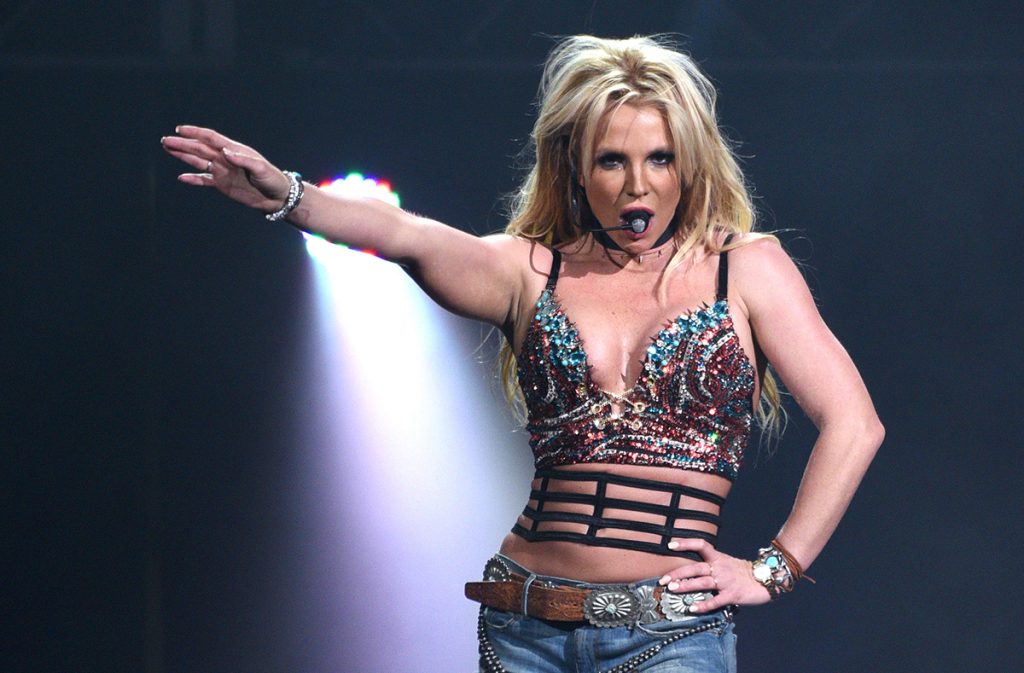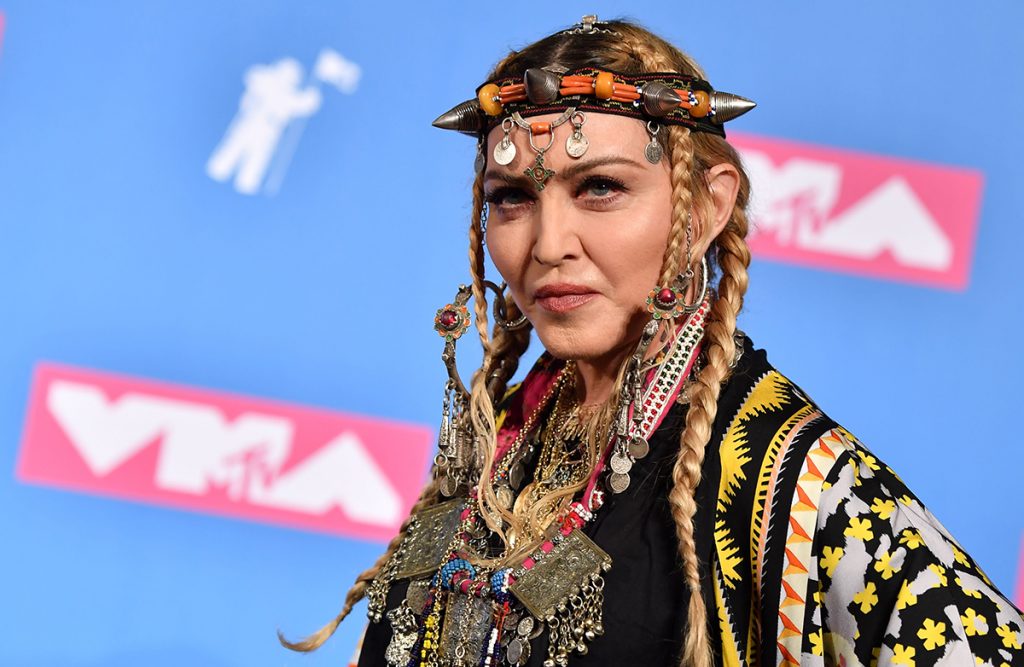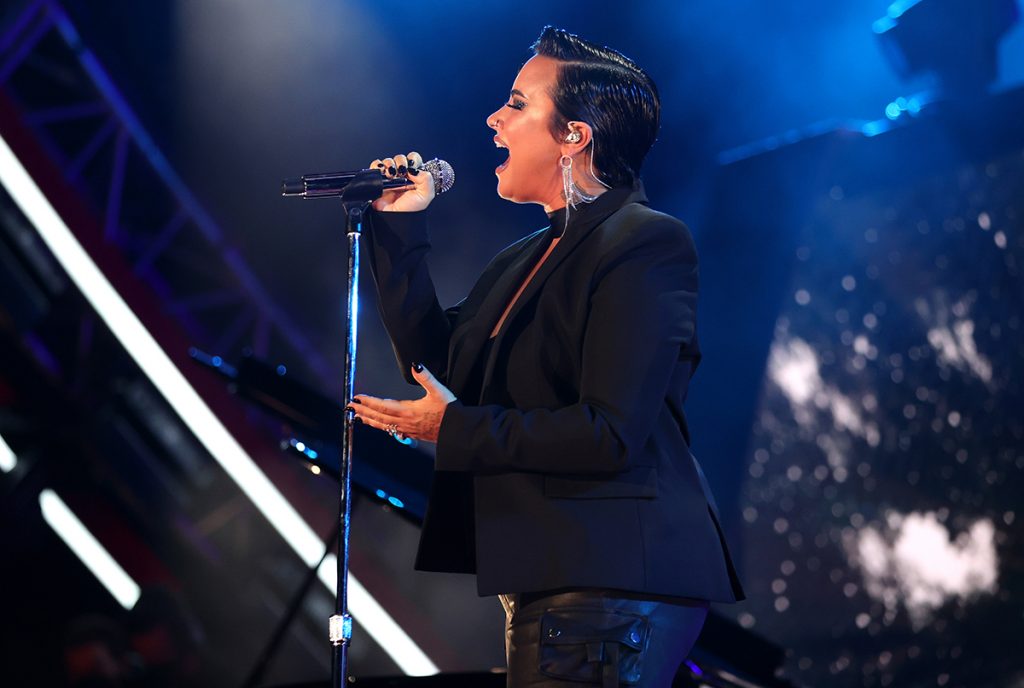Britney Spears' Former Backup Singer Recalls Breast Cancer Battle
- Kiley Dean, best known for singing backup vocals for talents like Britney Spears, Madonna and Demi Lovato, has opened up about the harsh realities that came with her breast cancer diagnosis a few years ago.
- Kiley underwent a mastectomy, which revealed her cancer was stage 1a. She finished chemotherapy in 2020, but they caused her to go into severe anaphylactic shock because she was allergic.
- Kiley is now cancer-free, but she'll continue with treatment that will "keep her hormone levels at bay for 10 years."
"When they told me (about the cancer), I literally lost my hearing," Kiley, who lives in Nashville, Tenn., with her husband Mason McSpadden and daughter, told People during a recent interview. "I couldn't hear for like a minute. I just went completely deaf."
Read More
While it's known that a family history of breast cancer can increase a person's chances of developing the disease, it should be noted that just because you don't have a history doesn't mean you can't get breast cancer. And that was the case for Kiley.
The lump prompted her to get a mammogram, and that mammogram resulted in the need to biopsy the lump in her left breast. And that biopsy revealed a breast cancer diagnosis.

She decided she would have a double mastectomy (surgery to remove both breasts at the same time) to treat what her doctors thought was stage 2b breast cancer. But before surgery, it was discovered that Kiley was pregnant again.
"It was then that I decided to do a singular mastectomy, because I still wanted to breastfeed if I could," Kiley told People. "So, my parents came in on a Sunday, and that was the day I miscarried. Not only was I preparing to lose a part of my body, but now I was losing a piece of my heart."

Kiley didn't have time to grieve her loss because the cancer still needed to be removed via surgery, which revealed her cancer was actually stage 1a.
She finished chemotherapy in 2020, but the fighting didn't stop there. Kiley's body rejected the expander placed in her left breast during surgery; she also went into severe anaphylactic shock, which doctors concluded was because Kiley was allergic to the chemotherapy drugs.

But as she's healed from cancer, she's also rediscovered her love of music. In fact, her voice is featured on the new single, What If We Loved, which was released earlier this year, alongside fellow musicians Ryan Prewett and Tyler Flowers.
"Music is medicine," Kiley said. "When it's something that you love and it's something that you're put on this earth to do, God keeps it in your life. And now, here I am, sprinkling little pieces of my cancer story into my music to help others."
Kiley is now cancer-free, but she'll continue with treatment that will "keep her hormone levels at bay for 10 years," according to People.
View this post on Instagram
Breast Cancer in Women Younger than 45
Breast cancer is the most common cancer among women in the United States, according to the U.S. Centers for Disease Control and Prevention.
The CDC also reports that breast cancer mostly occurs among older women, but it's possible for women under the age of 45 like Kiley to be diagnosed with this type of cancer. In fact, about 9% of all new breast cancer cases in the U.S. are found in women younger than 45.
But in some ways, a diagnosis for a younger woman can often be even more devastating, Dr. Ann Partridge, an oncologist at Dana-Farber Cancer Institute in Boston, told SurvivorNet in a previous interview.
Aggressive Breast Cancer in Young Women
This is because the cancer is likely to be a more aggressive form of the disease and also at an advanced stage, as screening for younger women is not standard.
Luckily for Kiley, her cancer was caught early stage 1a. But her symptoms still began when she was just 37 years old. So if she would’ve waited to get a mammogram, who knows when she would’ve caught her cancer or what stage it would’ve reached by then.
The point is, it’s possible for young women to get breast cancer, so listening to your body when something doesn’t feel right, like Kiley did, is vitally important.
What to Expect Post-Mastectomy Surgery
Most women with breast cancer, like Kiley, will have surgery at some point in their treatment. Depending on how far your cancer has spread and your personal preferences, you and your doctor may decide to:
- Remove just the cancer and an area of healthy tissue around it (lumpectomy)
- Remove one breast (mastectomy)
- Remove both breasts (double mastectomy)
Removing your breasts can have a dramatic effect on your self-esteem, which is why some women who opt for a mastectomy then choose breast reconstruction surgery. It’s unclear if Kiley opted for reconstruction surgery after her mastectomy. This is a highly personal choice, and there’s no "right" answer as to whether or not to reconstruct.
When Should You Consider a Mastectomy?
According to the American Cancer Society, bleeding and infection at the surgery site are possible with all operations. However, the side effects of a mastectomy can depend on the type: either a single (removing one breast) or double (removing both breasts).
Those side effects can include:
- Pain or tenderness at the surgery site
- Swelling at the surgery site
- Buildup of blood in the wound (hematoma)
- Buildup of clear fluid in the wound (seroma)
- Limited arm or shoulder movement
- Numbness in the chest or upper arm
- Neuropathic (nerve) pain (sometimes described as burning or shooting pain) in the chest wall, armpit and/or arm that doesn't go away over time. It is also called post-mastectomy pain syndrome, or PMPS.
- If axillary lymph nodes are also removed, other side effects such as lymphedema may occur.
Understanding and Treating Lymphedema
Learn more about SurvivorNet's rigorous medical review process.


